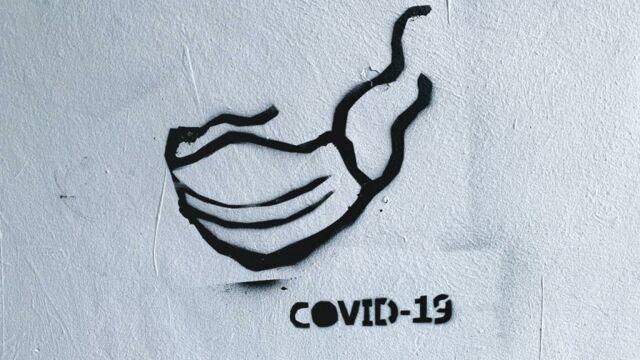COVID: Which masks to use for best protection

We often wonder what kind of masks we should and shouldn't purchase. Don't worry, we have made a note of the different types and their advantages. Read on to find out what fits you the best.
The UK is currently in the middle of the fifth wave of the coronavirus pandemic. The government has asked the people to be prudent during the end-of-year celebrations.
Discover our latest podcast
Masks shield you from particles ejected by others. Thus, to protect oneself in enclosed spaces, a mask is essential.
But be careful, not every mask is equal, and you have to change it frequently so that it keeps protecting you.
Cloth masks

Cloth masks may be constructed from a number of textiles and come in a range of colours and styles. They are also known as nonmedical masks. They can provide protection against droplets, but it is advisable to wear a disposable mask underneath for even better protection.
These masks are reusable after wash.
Make sure that:
- Fabric can block light
- Is tightly woven
Disposable masks

These are also called surgical masks and are often used for short intervals. These are cheaply available in abundance.
Make sure that:
- They are made with multiple layers of non-woven material
- They shouldn’t be wet and dirty before use
- Throw after use
Standard masks: You can distinguish the best quality medical masks by companies like Advanced Filtering Face Mask AFFM, Aries Barrier Face Covering. These masks meet a certain standard and perform consistently.
Respirators

They lend additional coverage against COVID and can be worn a few times. The most widely available respirators that meet an international standard are KN95s.
Other examples include 1st, DL2, DL3, DS2, DS3, FFP3, KN100, KP95, KP100, P2, P3, PFF2, PFF3, R95, and Special.
Make sure that:
- You do not wear international respirators with exhalation valves or vents
- Don’t wear wet and dirty ones
NIOSH approved masks

NIOSH evaluates certain respirators to a specific US standard that includes a quality criterion.
Quality criteria are seldom included in international standards. So these are the go-to masks for the most protection.
Here is a list of NIOSH approved masks suggested by Centers for Disease Control and Prevention.
Avoid FFP2 type
Already suspended in France and other countries, this kind of Face Filtering Piece contains graphene, which can induce lung-related problems. It is also a type of respirator.
Last April, Canada banned the sale of these masks, manufactured by the Chinese company Shandong Shengquan New Materials. Governments have warned that it is ‘impossible to evaluate the health risk’ of these masks.
More under this adMore under this adSo it is better to avoid the unknown.